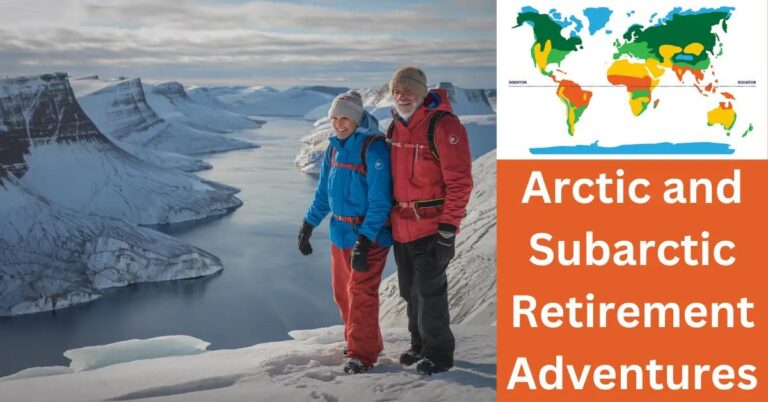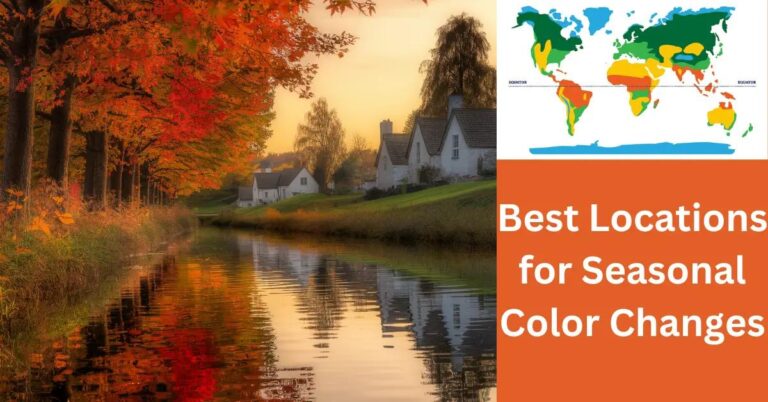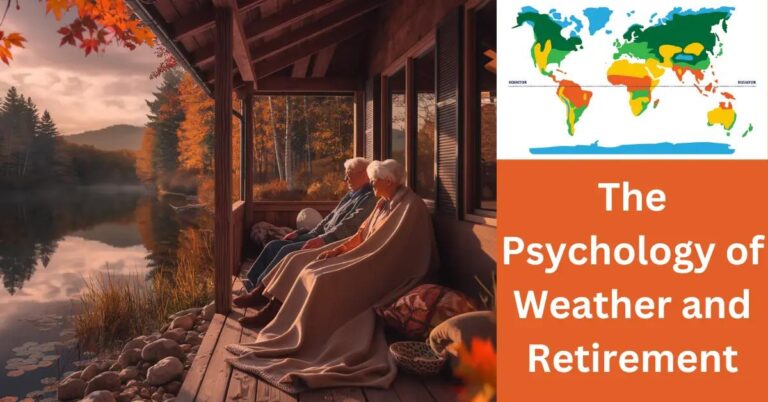TL;DR:
- Retirees should analyze climate preferences and health effects of locations.
- Warm climates ease joint pain; cold climates are allergen-friendly but have fall risks.
- Top climate choices include Portugal, North Carolina, and Costa Rica.
- Consider proximity to family alongside climate benefits.
- Climate change may affect retiree health; adjust habits accordingly.
- Access to healthcare that understands local climate impacts is crucial.
- Adapt homes with energy efficiency and durable materials.
- Financially, consider cost of living, taxes, and potential unexpected expenses.
- Socially, move to a location with community involvement opportunities.
- Weigh family proximity and personal needs when selecting a retirement climate.
Retirement should be your time to thrive, and choosing the right climate is key. Whether you're dreaming of sun-drenched beaches or breezy mountains, finding a climate that matches your health and lifestyle is crucial. In this blog, I'll guide you through steps to make an informed choice, from assessing personal needs to evaluating health benefits. Let’s explore how you can make your golden years as comfortable and enriching as possible. Ready to find your perfect weather haven?
How Can Retirees Choose the Right Climate for a Comfortable Retirement?
Choosing the right climate for retirement feels like holding a treasure map. But instead of 'X' marks the spot, you need to figure out what suits you best. Start by assessing your personal climate preferences and needs. Do you prefer warm, sunny days or cooler, brisker air? Think about what makes you feel good.
Next, evaluate the health benefits and risks each climate may offer seniors. Warm climates can ease joint stiffness, but high heat poses dehydration risks. Cooler regions often reduce allergens, but icy paths increase fall risks. You need to weigh these factors just like you would when shopping for a new home.
Now, where is the best place to retire with climate change? Precision requires looking at climate comfort indexes, revealing how weather feels year-round. Some people find places like Portugal favorable, with mild winters and warm summers.
In the U.S., states like North Carolina offer a balanced four-season climate. Meanwhile, Costa Rica shines as a top choice globally, thanks to its stable climate and affordability.
Also, consider proximity to family versus your climate preferences. Maybe a close family is a higher priority than perfect weather. Exploration helps, too. Look into retirement communities where the weather aligns with your tastes but don't lose sight of family connections.
Truth is, finding the ideal spot takes research and introspection. Visit different places, and talk to local retirees. Their insights are gold. Also, rely on credible resources like Retirement Relocation Guides to determine your preferred climate's feasibility.
In conclusion, aim for a climate with the health and comfort you need, balancing family ties and personal desires.
What considerations are essential for maintaining health in various climates during retirement?
Do you think climate change puts our ability to retire at risk? Yes, it can. Climate change affects weather patterns and can impact retirement plans. Seniors might face increased health risks like heatwaves or cold snaps. Understanding these challenges is crucial. As our bodies age, we become more sensitive to weather changes. Humidity can make breathing harder and worsen joint pain. Extreme temperatures can quickly tire us and pose serious health risks.
Does climate matter less when you're retired? No, it still matters. Since health impacts increase with age, considering the climate becomes even more essential. Adjusting your routines helps in managing these effects. Dress appropriately, stay hydrated, and use air conditioning when needed.
Healthcare access is another vital factor. Finding healthcare providers who understand climate impacts is key. They can offer advice and treatments tailored to climate challenges. Choosing a healthcare network experienced with local climatic conditions ensures better management of your health.
What is the best way to adapt to climate change? Start by employing strategies to mitigate health risks. Regular check-ups with healthcare providers help. You can focus on keeping cool in summer and warm in winter.
Staying active, regardless of the weather, is important too. Adapt exercises to suit the climate. During hot days, walk in shaded areas or early mornings. In cold climates, indoor exercises keep you moving. Engage in community activities to maintain social connections. Staying active both physically and socially is part of healthy living in any climate. For more information on how to maintain health amidst climate changes, exploring useful resources can be incredibly beneficial.
How can retirees adapt their homes and lifestyles in new climates?
Choosing to face a new climate in retirement requires careful home adaptations. One major change involves making your dwelling energy-efficient. This begins with evaluating energy efficiency in retirement homes. Retrofitting insulation, sealing drafts, and installing double-glazed windows are simple fixes. Another step is downsizing to a smaller, manageable climate-suited space. This move reduces both energy use and upkeep effort.
Climate impacts your home layout and materials too. In hot areas, homes benefit from shaded patios or awnings. In storm-prone regions, durable materials like metal roofing provide protection. Each choice should reflect local weather challenges. Moreover, integrating eco-friendly living practices improves adaptability. Simple steps include installing solar panels and harvesting rainwater.
Adapting to a new climate doesn’t stop at your home. It involves maintaining your routine and embracing stability. New environments can disrupt daily habits, but planning can help. Find favorite spots like a local cafe or a walking path. Establish routines such as regular grocery days or community group meet-ups.
"What is the best way to adapt to climate change?" You start by making your home resilient to weather. Adjustments like insulation and window upgrades are key. "Should I stay near family or move for a better climate?" Consider health, comfort, and lifestyle preferences. Family proximity offers support, but climate can impact well-being.
Adapting homes and lifestyles in retirement involves thoughtful planning and action to face climate challenges with ease, enabling a smooth transition into this new life phase.
What are the Financial and Social Implications of Moving to a New Climate in Retirement?
"Should I stay near family or move for a better climate?" It's a big decision. First, consider the cost of living differences. Some places might have lower taxes, which helps stretch a retirement budget. But remember, living costs can differ greatly by region. In another place, groceries or health care might cost more. Understand tax implications carefully—these affect your financial plan.
"Does climate matter less when you're retired?" Climate still influences your daily comfort. You want an environment that lets you enjoy retirement activities. Warmer climates might appeal, but warmer can mean higher air conditioning bills. Look into possible pension adjustments if you are moving to another state or country. Pension rules vary, which impacts monthly payments.
Plan for unexpected costs. Sometimes, getting settled means extra expenses. You might need new home furnishings or services unique to the area. Consider if the new location has social opportunities. Making friends is key to feeling at home. Getting involved in community groups helps build new connections. Sometimes local networks offer special events for newcomers.
In a new place, you might miss family, but local support groups can fill that gap. These groups often provide activities and introduce you to others. Engaging in local communities not only eases the transition but enhances your retirement experience. Active involvement leads to stronger social ties and a happier lifestyle. Choose your location carefully to balance finances and climate with the social connections you treasure.
Conclusion
Choosing the right climate for retirement is crucial. We assessed personal climate needs, identified top retiree locations, and balanced family proximity with climate preferences. We examined adapting homes and lifestyles for new climates while considering health impacts and financial/social implications. Remember, your comfort is key. By understanding climate effects and adapting proactively, you can enjoy a rewarding retirement. Consider climate benefits, potential risks, and how they align with your lifestyle. Planning today ensures a healthy, fulfilling tomorrow.












